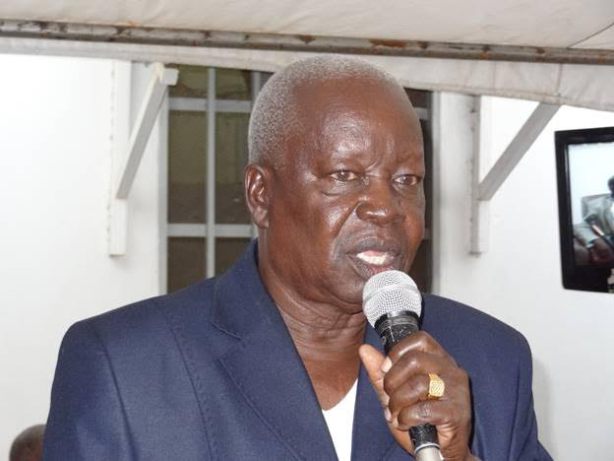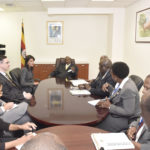Banks in war-ravaged South Sudan have run out of cash and the crunch is exacerbating hunger and widespread famine, the deputy finance minister says.
‘If you go to the commercial banks, you do not find South Sudan pounds and dollars. They are all in the black market,’ said Deputy Minister Mou Ambrose Thiik.
He said a parallel economy had emerged and people were hoarding cash. Black market rates have reached 150 South Sudanese pounds to the US dollar, up from 105 in mid-February.
South Sudan has a steady stream of hard currency from its oil, but production has been slashed and most of the cash is eaten up by operating costs.
‘We have very minimum foreign reserves. I cannot tell you at the moment how much it is,’ he said in an interview.
The world’s youngest nation plunged into civil war in 2013, just two years after independence from neighbouring Sudan, after President Salva Kiir fired his deputy Riek Machar.
The conflict has split the nation along largely ethnic lines and the United Nations has warned of a possible genocide. More than 3 million people have fled their homes out of a population of 12 million.
The UN has declared famine in some parts of the country and nearly half its population face food shortages.
Thiik said money shortages had worsened the crisis, and also accused UN agencies and foreign businesses of ‘bad practices’ for not depositing dollars in South Sudanese banks.
‘The dollars that are brought to help the country do not arrive in the country but they are banked somewhere else,’ he said, adding: ‘It is something we need to address with the UN agencies, which are the main suppliers of the dollar.’
The UN did not immediately respond to requests for comment.
Last month, a confidential UN report noted the government still spent millions of dollars on security forces despite the famine.






